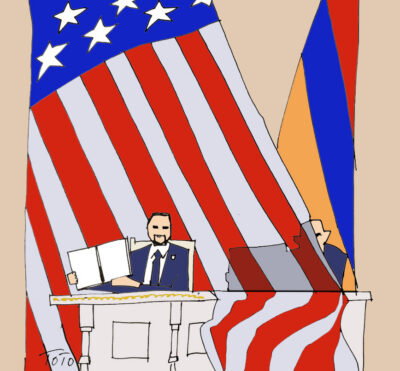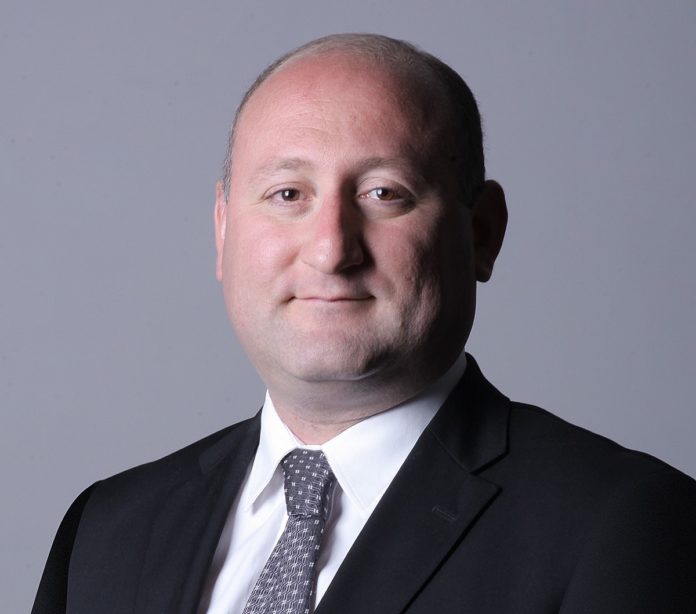In my previous article, I observed that Armenia and the USA have underwhelming bilateral relations. Their economic, political, and military cooperation is insufficient to engage the heads of state, as there are no significant issues to discuss at the highest level. The same applies to military cooperation. Suren Papikyan, Armenia’s minister of defense, is the only minister in independent Armenia’s history to visit the Pentagon without meeting his counterpart, the US secretary of defense, during his 2022 visit, which yielded no significant results. All other Armenian defense ministers, including Vazgen Sargsyan, Serzh Sargsyan, and Seyran Ohanyan, held bilateral meetings with their counterparts when visiting Washington. The USA never provided arms or ammunition to Armenia; instead, bilateral cooperation focuses on educational programs and training, with military exercises primarily aimed at peacekeeping. Security assistance is limited to the procurement of defense articles, services, design and construction services, as well as training for Armenian military students both abroad and in the United States, including related training aids and materials.
The chief of the General Staff of the Armed Forces of Armenia was in the US recently. This visit brought to light several key points. The Armenian Ministry of Defense’s press release noted that Lieutenant General Edward Asryan met with US Joint Chiefs of Staff Chairman General Charles Brown. They discussed mutual interests and reinforced the development of Armenia-US defense cooperation. The US reaffirmed its commitment to supporting the transformation and reform of the Armenian Armed Forces. The importance of maintaining joint activities and addressing various regional security issues was also emphasized.
This readout differed significantly from the US version. Joint Staff Spokesperson Jereal Dorsey stated that Gen. Brown expressed appreciation to Lt. Gen. Asryan for Armenia’s productive military cooperation with the US and emphasized the need to enhance their defense relationship. While discussions in Armenia about leaving the Collective Security Treaty Organization (CSTO), a Russian-led military alliance, continue, the two officials are exploring ways to reform the Armenian army. However, there are currently no talks about restructuring the army to NATO standards, as seen in neighboring Georgia. This is largely due to the absence of US arms and technology necessary for such a transformation. Thus, it is clear that these discussions are not on the agenda, and Armenia is unlikely to exit the Russian sphere of influence.
I have had the chance to express my views on the situation. Armenia is reluctant to leave the CSTO and does not want to transition its army to non-Russian standards, requiring additional guarantees from the US and NATO that are unlikely to materialize. Consequently, Yerevan will seek to buy time to assess the outcomes of the Ukrainian war and the US presidential elections to better shape its foreign policy.
Coming back to the meeting of the two generals, they indeed discussed Armenia’s military modernization efforts, with Gen. Brown offering support via the State Partnership Program and additional training. Lastly, Brown expressed concerns about Russia’s negative influence in the region and the necessity to address these challenges, mentioning that the US remains dedicated to promoting regional stability and lasting peace in the South Caucasus. The US general’s statement outlines American interests in the South Caucasus, which are well-known and documented in the US National Security Strategy and other public materials. Notably, the Armenian military leadership has avoided addressing the anti-Russian sentiment, has not responded to the general’s remarks, and excluded them from their press release, choosing not to adopt an anti-Russian position.
The question arises whether Yerevan genuinely seeks to strengthen military ties with the US, as it continues to view the US primarily as a provider of aid to Armenia. The second question is what Armenia can offer the USA, aside from anti-Russian stance, to stimulate Washington’s interest in military collaboration.








